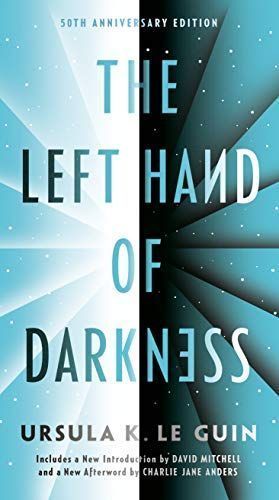
The Left Hand of Darkness
'A rich and complex story of friendship and love' GUARDIAN 'It's a giant thought experiment that's also a cracking good read about gender' Neil Gaiman 'Love doesn't just sit there, like a stone, it has to be made, like bread; remade all the time, made new' Two people, until recently strangers, find themselves on a long, tortuous and dangerous journey across the ice. One is an outcast, forced to leave his beloved homeland; the other is fleeing from a different kind of persecution. What they have in common is curiosity, about others and themselves, and an almost unshakeable belief that the world can be a better place. As they journey for over 800 miles, across the harshest, most inhospitable landscape, they discover the true meaning of friendship, and of love.
Reviews
martian1138@martian1138
Amalie@amalien
Hamed Khalidi@hamedkhalidi
Acadia@drakka
lala@polijus
mickey@mllam
laia@neverminddd
Sarah Sammis@pussreboots
Emiley Jones@emileyjones
Rae@raeraerae
Tobias V. Langhoff@tvil
Dora Tominic@dorkele
mic shulman@micshul
Kyle Kettler@kylekettler
Quinn Tenorio@qkt
A.L.L.@alice_is_alces
Varun Jayaraman@sobafuchs
Madi Van Houten@madi_vh
Michael Springer@djinn-n-juice
Bouke van der Bijl@bouk
Prashanth Srivatsa@prashanthsrivatsa
Shona Tiger@shonatiger
g.m.@genie_m
Eva Decker@evadecker
Highlights
Emily McMeans@emilymcmeans
Page 212
Dora Tominic@dorkele
Page 229
Dora Tominic@dorkele
Page 151
Dora Tominic@dorkele
Page 136
Dora Tominic@dorkele
Page 1
cedar winslow@cwinslow
Madi Van Houten@madi_vh
Madi Van Houten@madi_vh
nikki@n_still_life
nikki@n_still_life
nikki@n_still_life
August Stone@unfortunatecrowboy
Page 242
Jiji@notparanoid
Jiji@notparanoid
Alec Karlen@alec-karlen
Alec Karlen@alec-karlen
Alec Karlen@alec-karlen
Alec Karlen@alec-karlen
Alec Karlen@alec-karlen
Alec Karlen@alec-karlen
Alec Karlen@alec-karlen
anita🌼@anixhz
Page 54
Elke Maasbommel@theopenbook
Page 1
里森@lisson